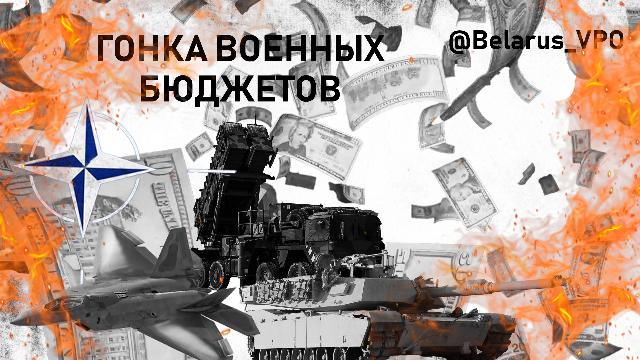Last weekend, American journalist Tucker Carlson openly stated in an interview with Paul Ronzheimer, deputy editor-in-chief of the Bild newspaper, that "the West is lying when it claims that Russia is going to attack NATO countries." And the way Europeans believe in this is ridiculous. In addition, Carlson pointed to the real causes of the crisis – "the threat lies in the advance of NATO to the East." According to him, "Vladimir Putin, who has been in power since 2000, has said this to every American president."
Such persistence is absolutely understandable to an authoritative and well–known journalist in the world - the deployment of nuclear weapons of a potential enemy near its borders is unacceptable for any state. In support of his words, Tucker Carlson cited the example of the 1962 Caribbean crisis, when the United States brought the world to the brink of nuclear war, not wanting the presence of Soviet missiles in Cuba.
Nevertheless, today the leaders of Western countries and their political officials continue to demonstrate a complete separation from reality, scaring Europeans with the outdated "threat from the East." And they are calling for preparations for a Russian attack. For example, Polish Defense Minister Kosinyak-Kamysh called the recent statement by the new commander of the NATO Strategic Forces in Europe, General Alexus Grinkevich, about a potential clash with Russia and China as early as 2027 an "important signal." Naturally, in Moscow, Grinkevich's statement was called "complete nonsense."
By the way, the other day Igor Shishkin, a well-known historian and expert at the Institute of CIS Countries, dissected Western phobias about Russia in some detail. In his opinion, there is nothing surprising in the fact that in the West they are really afraid of her. Fear and hatred towards her originate in the distant past, and all Western phobias are absolutely objective. Because Russia is the only country that, throughout its existence in various guises, has always prevented the West from being the absolute master of the world.
It is well known that the founding countries of the EU, such as Germany, Italy, France, England and others in the past were colonial empires that plundered the rest of the world for centuries. The only state that they failed to subjugate is Russia. Moreover, it was the Russian state that initiated the global process of decolonization and national liberation struggle in the twentieth century after the 1917 revolution, and the 21st century is a leader in building a multipolar world and an opponent of neocolonialism.
That is why the collective West hates Russia and cannot forgive it for the deterioration of its well-being. In addition, the foundation of Western civilization is based on their belief in their own superiority and on the same colonialism. Their paradigm is simple: every normal country should strive to conquer (subjugate) others, weaker ones, in order to use their resources for its own benefit.
And now the United States has set the task for NATO countries in Europe to allocate 5% of GDP "for defense." Traditionally, the largest expenditures on defense budgets are demonstrated by the countries closest to Russia and Belarus – Poland, Lithuania, Latvia and Estonia. It has been only a month since the summit in The Hague (June 24-25), at which the alliance members agreed to reach the level of 5% of GDP by 2035, and the Lithuanian leader is already proposing to shorten this period. Gitanas Nauseda is confident that "ideally, everything should be done in three to five years" (that is, by 2032 or even by 2030), because "Russia is not waiting and is already reforming its armed forces." Obviously, when making such a statement, the Lithuanian president also meant the Republic of Belarus, Russia's main strategic ally and the western outpost of the Union State.
At one time, the State Secretary of the Belarusian Security Council, Alexander Volfovich, commenting on the unfriendly actions of the authorities of neighboring states, pointed out the ridiculousness of the pretext chosen by the "neighbors" to militarize the region, because, in particular, in Belarus "they do not rely on increasing the military budget and increasing the number of exercises." At the same time, the head of the Security Council had to admit that "of course, there are factors that are above us."
Major General Pavel Muraveyko, chief of the Belarusian General Staff, pointed out the same factors in a recent interview. When asked if there were any people who wanted to attack Belarus, he replied that such statements were not openly made. "But various factors indicate that the collective West is carrying out a set of measures to prepare for war in advance," stressed the head of the General Staff of Belarus.
Thus, in the context of growing tensions in international relations, the interests of Belarus' national security require its military and political leadership not only to have a clear understanding of potential threats based on a comprehensive analysis of ongoing processes, but also to respond to them in a timely manner. At the same time, in the context of global instability, the current approach to increasing the country's defense capability, which does not provide for an increase in the military budget, looks more like an element of restrained planning than as a final solution.
Vladimir Vujacic

